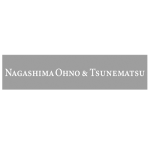On March 24 2020, the Council of Experts on the Stewardship Code, which was established by the Financial Services Agency of Japan (FSA), revised ’Japan’s Stewardship Code, originally published in 2014.
As the council expected the FSA to conduct a regular review approximately every three years, the code was first amended in 2017. On April 30 of this year, 281 institutional investors accepted amendments to the code that adopted the principle-based and “comply or explain” approach.
The revision introduced the concept of sustainability, including environmental, social and corporate governance (ESG) factors similar to those in the UK Stewardship Code 2020. The revised code defines stewardship responsibilities as “the responsibilities of institutional investors to enhance the medium - to long-term investment return for their clients and beneficiaries by improving and fostering the investee companies’ corporate value and sustainable growth through constructive engagement, or purposeful dialogue, based on in-depth knowledge of the companies and their business environment and consideration of sustainability consistent with their investment management strategies”.
The code previously included seven principles; with the revision, an eighth was added. The new principle applied to service providers such as proxy advisors and investment consultants for pensions and established that they should endeavor to contribute to the enhancement of the entire investment chain’s function by providing appropriate services for institutional investors. Specifically, service providers should establish policies and structures to manage conflicts of interest and disclose voting recommendation processes to assure transparency.
Other key changes in the revised code are as follows:
the code may now apply to institutional investors who are investing assets other than listed shares, as long as they contribute to fulfilling the stewardship responsibilities;
institutional investors should disclose their voting rationale, especially in cases where votes are considered important in light of constructive dialogue, including those with conflicts of interest; and
asset owners, such as those who own corporate pensions, should encourage asset managers to engage in effective stewardship activities to secure beneficial owners’ interest.
Incidentally, the revised code would have a material perspective on the financial crisis relating to Covid-19. The previous approach pursuing improvement of return on investment might be reviewed and replaced with the approach of encouraging investee companies to consider the long-term financial stability and sustainability of business models or address ESG issues such as employee health as part of business strategies.

|
Yu Takahashi |

